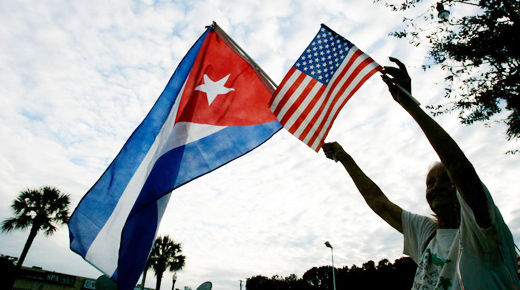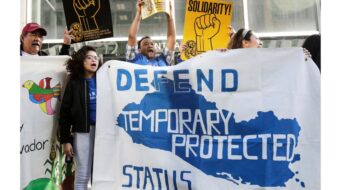
In the wake of the breakthrough announced last December by Presidents Barack Obama and Raul Castro, who announced on that date their agreement to end the 54-year U.S. blockade of Cuba, the biggest problem facing foreign policy makers today may not be immediately apparent to the average person browsing the internet.
Designation of Cuba as a so-called terrorist nation was a cold war strategy which served to encourage opportunistic violence derived from illegal methods condoned by the highest echelons of government. The legacy of Helms-Burton (1996) is its perverse nature.
Codification in the Helms-Burton Act of blockade policy (previously changeable at the president’s discretion) gave cover for wage economic and cultural warfare on Cuba through clandestine operations from U.S. soil. Creating an enemy for short-term political advantage in which changing tactics for particular situations were developed in order to provide a pretext to extend the US blockade against Cuba was the ultimate aim.
In hindsight, political inertia due to isolationist policy does not fully explain the contempt and arrogance displayed by US government bureaucrats in maintaining Cuba on an arbitrary list of rogue nations (the list of State Sponsors of Terrorism) since 1982.
When economic returns on such an obsolete policy became too costly for either US political party to quantify, the capitalist class was forced to make a concession to a more gradual implementation of its long-range plan of regime change. While the objective to permit US farmers and business to trade with their Cuban partners is a worthy goal, as pointed out by many progressive leaders, U.S. people hold the key to driving this process forward.
Solidarity, friendship and cooperation have been hallmarks of the Cuban Revolution, yet vigilance is the price of liberty. The duty of the Left now is to demand accountability from Congress to respect international law and support repeal of the extra-territorial Helms-Burton Act.
Any political pretense that aids counter-revolutionary activity must be abandoned if U.S. negotiators expect to find common cause with their Cuban allies. Whether revoking the latest decree against Venezuela or removing Cuba from a phony terrorist list, the political will to negotiate complex issues on equal terms in good faith depends on credibility and good leadership.
Photo: Lynne Sladky/AP










